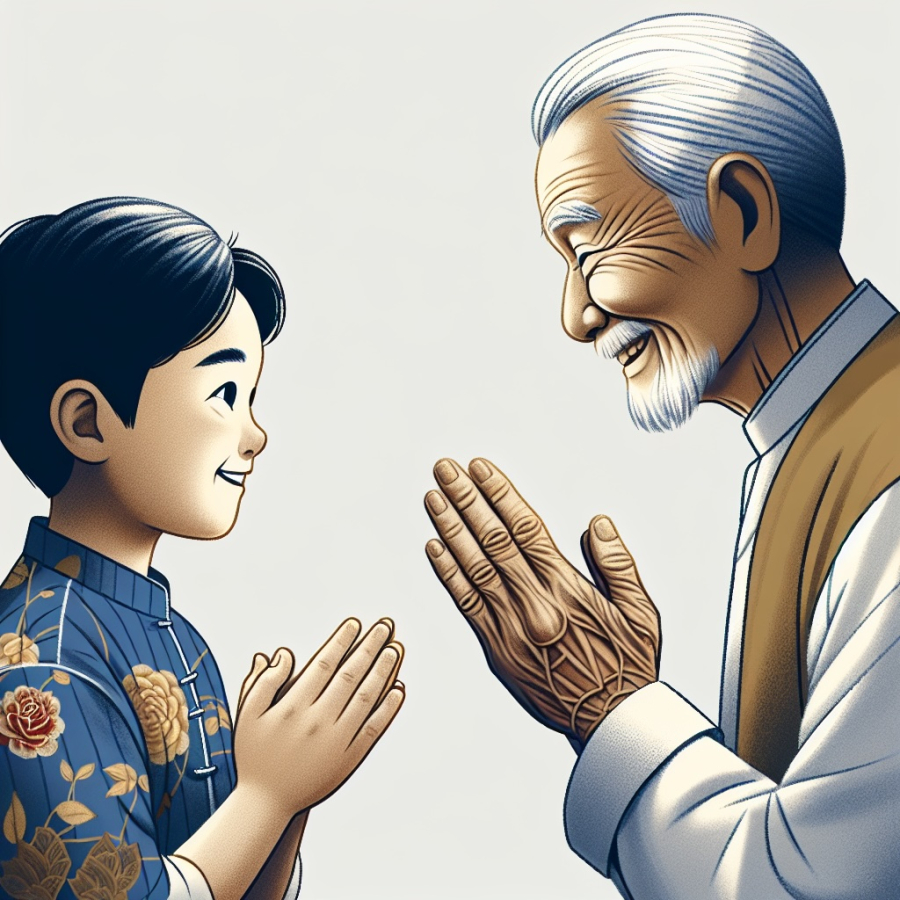Many parents complain about their difficult and disrespectful children. If a child doesn’t know how to respect others, they will not be valued. Parents need to teach their children how to behave. A child will not understand about respecting others if they are not taught. This also makes it difficult for children to establish any relationships.
To teach children about respect at a young age, parents can apply the following methods:
Confront disrespectful behavior, don’t ignore it
Parents should confront their child’s disrespectful behavior early on. When you see your child being rude or disrespectful to others, don’t turn a blind eye and show your dissatisfaction immediately.
Parents can point out the consequences of such behavior for the child to realize their mistake.

Teach children basic skills
Do not underestimate basic life skills. Basic social skills such as saying thank you, sorry, and hello are very important for every child to learn. The listener will feel greatly appreciated and happy when hearing these words from a child.
Children need to understand that these simple behaviors are also a form of empathy. This teaches children to respect others.

Praise your child when they show respect for others
When you see your child showing respect to others, don’t hesitate to praise them. But don’t praise in a general way, instead acknowledge specific actions of the child. For example: “I am very happy when you asked me before taking the cake.” This helps the child understand more about their proud actions and feel the appreciation. From there, the child also has more motivation to maintain positive behaviors.

Parents are role models for children
Parents being role models in showing respect is the most effective educational method for children. Parents should also show respect to their children because children need to be treated with the same respect as adults. Listening to their child will build trust and understanding between parents and children, while enhancing their self-confidence and listening skills at home.
In addition, parents should behave appropriately in every situation. Use polite language in communication, don’t forget to say thank you or apologize when necessary. Young children will learn from their parents’ behavior through observation and imitation of their words and actions.
Learning Tips for Parents: 12 Japanese Techniques to Use with Your Children
Discover the 12 principles of teaching children in the traditional Japanese way that parents can learn with Dien May XANH! By instilling these principles when your children are young, you can ensure that they grow up to be obedient, smart and polite, the hallmarks of a successful education in Japan.
“Creating Lasting Memories: 10 Tips for Strengthening the Father-Child Bond”
Are you looking for effective ways to create a strong and close relationship with your child? If so, this article is for you! Find out 10 creative ways to nurture the father-child bond and make the relationship between you and your child more meaningful. These simple tips can help you create a special bond with your child and build strong emotional ties.
12 Psychological Strategies for Achieving Family Happiness as a Man
It is no secret that keeping a family happy is no easy task. Fortunately, men can utilise a number of psychological tips to help maintain a sense of harmony and joy in their household. In today’s society, the role of men in ensuring a loving and nurturing atmosphere is invaluable. Here are 12 psychological tips for men to help bring harmony and joy into their households.



































